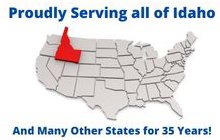Navigating the mortgage landscape can be difficult, especially given the number of alternatives and financial responsibilities involved. Understanding the various types of mortgages, comparing lender rates, and knowing when to seek professional guidance will help you make informed decisions that are in line with your financial objectives.
An Overview of Different Mortgage Types and Terms
Mortgages exist in a variety of sorts, each with its own set of terms and perks. The most prevalent mortgages are fixed-rate and adjustable-rate. A fixed-rate mortgage maintains a consistent interest rate for the duration of the loan, making monthly payments predictable. This type is great if you intend to stay in your house for a long time and want the assurance that your payment will not fluctuate.
An adjustable-rate mortgage (ARM) has a lower initial interest rate that varies on a regular basis based on market conditions. While ARMs can save you money in the short term, your payments may increase if interest rates rise. These are ideal if you want to sell or refinance before the rate adjustment period.
There are other specialist loan kinds, such as FHA loans, which are insured by the Federal Housing Administration and have lower down payments and credit scores, and VA loans, which are available to veterans and active-duty military members with no down payment in many circumstances. Understanding your options will allow you to select the mortgage that best meets your financial condition and future aspirations.
How to Compare Lender Rates and Fees Effectively
Comparing mortgage rates and costs from various lenders is important for getting the best deal. Begin by seeking quotations from different lenders, paying attention not only to interest rates, but also to the Annual Percentage Rate (APR), which includes both the interest rate and any additional costs. This gives a more accurate picture of the loan’s overall cost.
Look for usual fees including origination, appraisal, and closing costs. These can differ greatly amongst lenders, affecting the total affordability of your mortgage. Consider the loan terms, including the length of the mortgage and any prepayment penalties. By carefully examining these criteria, you may determine which lender provides the best value for your circumstances.
The Role of a Mortgage Broker in Finding the Best Deal
A mortgage broker serves as a mediator between you and potential lenders. They have access to a wide variety of loan options and can assist you in finding a mortgage that is appropriate for your financial circumstances. Brokers frequently have existing contacts with lenders, which enables them to negotiate better rates and terms on your behalf. Brokers charge a fee for their services, but the potential savings may outweigh the cost. If you’re new to the mortgage process or seeking specialized lending choices, a mortgage broker can be a great help.
Pre-Approval vs. Pre-Qualification: What They Mean for You
Understanding the distinction between pre-approval and pre-qualification is essential when looking to purchase a property. Pre-qualification is an informal process in which a lender estimates how much you can borrow based on self-reported financial information. It’s a good initial step for determining your budget, but it doesn’t hold much weight with sellers.
Pre-approval, on the other hand, is a more formal process in which a lender verifies your financial information and makes a conditional commitment to a certain loan amount. A pre-approval letter shows sellers that you are a serious buyer with the financial resources to finish the transaction, giving you a competitive advantage in a hot market.
Refinancing Options for Future Financial Flexibility
Refinancing your mortgage might provide financial flexibility in the future, allowing you to take advantage of reduced interest rates or change your loan conditions. Common reasons to refinancing include lower monthly payments, shorter loan terms, or converting from an ARM to a fixed-rate mortgage for greater stability. Some homeowners refinance to access their home equity through a cash-out refinance, which can be used to pay for home upgrades or to consolidate debt.
When considering refinancing, it is important to balance the costs, such as closing fees, against the potential savings. This ensures that refinancing is consistent with your long-term financial objectives.
Finding the appropriate mortgage involves more than just selecting a loan with a low interest rate. Understanding the various mortgage kinds, comparing lender rates and fees, utilizing the experience of a mortgage broker, and evaluating both pre-approval and refinancing possibilities will help you acquire a mortgage that best meets your financial needs and future plans. Make informed decisions now to ensure your financial future tomorrow. Call InterWest Mortgage now to get started!





